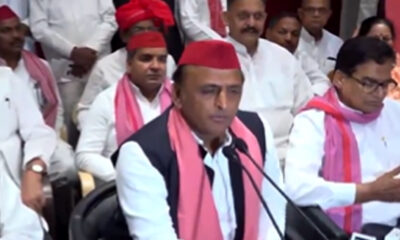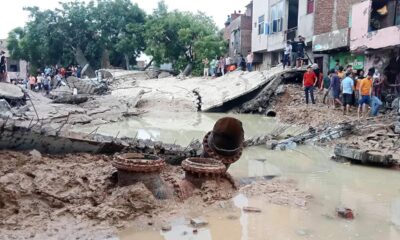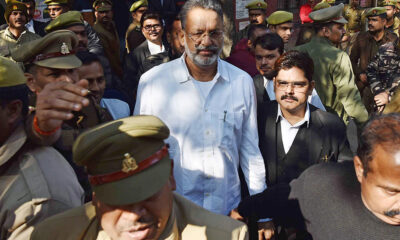india
UP Police: Tripta Tyagi Faces Juvenile Justice Act
UP Police invokes Juvenile Justice Act in FIR against Tripta Tyagi for student assault

Agra: the Uttar Pradesh Police has recently incorporated Section 75 of the Juvenile Justice Act into the FIR filed against Tripta Tyagi, a school teacher who stands accused of instructing her students to slap a fellow Muslim classmate due to his failure to complete his homework. This development has far-reaching implications not only for the accused but also for the broader context of child protection and justice in India.
Understanding Section 75 of the Juvenile Justice Act
Section 75 of the Juvenile Justice Act is a pivotal piece of legislation that addresses situations where a person in charge of a child engages in activities that harm or neglect the child in any way. These activities may include physical abuse, abandonment, mistreatment, or willful neglect. The inclusion of this section in the FIR against Tripta Tyagi underscores the seriousness of the allegations against her.
Penalties Under Section 75
The Juvenile Justice Act lays down stringent penalties for those found guilty under Section 75. Offenders may face a rigorous imprisonment term ranging from three to ten years, in addition to a substantial fine of Rs 5 lakh. These penalties are designed to serve as a deterrent against any form of child abuse or neglect, emphasizing the government’s commitment to safeguarding the rights and well-being of children.
Background of the Case
The case against Tripta Tyagi was initially registered on August 26 following a complaint filed by the boy’s family. The charges against her at that time included sections 323 (voluntarily causing hurt) and 504 (intentional insult with intent to provoke a breach of the peace) of the Indian Penal Code. These charges were classified as non-cognizable offenses.
However, as the investigation progressed, Circle Officer Ravi Shankar confirmed the inclusion of Section 75 of the Juvenile Justice Act in the FIR against the schoolteacher. This decision underscores the gravity of the situation and the need to ensure that justice prevails in cases involving the mistreatment of children.
The Viral Video That Sparked Outrage
The turning point in this case occurred on August 25 when a viral video began circulating widely. The video depicted Tripta Tyagi instructing her students to slap a second-grade boy at Neha Public School in Khubbapur village, Muzaffarnagar district. What made matters worse was that during the incident, Tyagi also made a communal remark, further intensifying the outrage.
Public and Political Reaction
The video, with its disturbing content, triggered strong reactions from various quarters. Political leaders across the spectrum expressed their condemnation of the incident, calling for strict action against the accused teacher. Additionally, the National Commission for Protection of Child Rights (NCPCR), the apex body responsible for safeguarding the rights of children in India, swiftly responded by demanding punitive measures against Tripta Tyagi.
Tripta Tyagi’s Defense
In her defense, Tripta Tyagi claimed that the video had been manipulated to incite tensions. She argued that it was recorded by the boy’s uncle and maintained that her actions were a result of her physical handicap, which prevented her from reaching the student who had not completed his assignment.
The Broader Implications
The case of Tripta Tyagi highlights the critical role of the legal framework in safeguarding the rights of children. The inclusion of Section 75 of the Juvenile Justice Act in the FIR is indicative of a commitment to ensuring that no child in India faces physical abuse, mistreatment, or neglect at the hands of those responsible for their care.
It also serves as a stark reminder that in today’s digital age, incidents of child abuse or misconduct can quickly become public knowledge, leading to widespread outrage and calls for justice. The response from the NCPCR and political leaders underscores the collective responsibility to protect the most vulnerable members of society.
Conclusion
Incorporating Section 75 of the Juvenile Justice Act into the FIR against Tripta Tyagi is a significant step towards addressing the alleged mistreatment of a young student. It sends a clear message that child abuse and neglect will not be tolerated, and those responsible will face the full force of the law.
As this case unfolds, it serves as a reminder of the importance of safeguarding the rights and well-being of children across India. The government, law enforcement agencies, and society at large must work together to ensure that children are protected from harm and that justice prevails.
Karnataka
Hubli Tragic Incident : Migrant Worker Suspected in Child’s Murder Dies in Police Encounter
In a heartbreaking event that has shaken Hubballi, Karnataka, a five-year-old girl was allegedly kidnapped and killed, sparking outrage in the community. The suspect, a 35-year-old migrant worker from Patna, Bihar, was later killed in a police encounter on Sunday, April 13, 2025, according to authorities. The incident began when the young girl’s body was […]

The shocking incident in Hubli has intensified concerns over child safety and sparked widespread public outrage.
In a heartbreaking event that has shaken Hubli, Karnataka, a five-year-old girl was allegedly kidnapped and killed, sparking outrage in the community. The suspect, a 35-year-old migrant worker from Patna, Bihar, was later killed in a police encounter on Sunday, April 13, 2025, according to authorities.
The incident began when the young girl’s body was discovered in an abandoned shed, prompting a swift response from the Karnataka Police. Using CCTV footage, officers identified the suspect, Ritesh Kumar, who was accused of abducting and murdering the child. Authorities suspect the girl may have been sexually assaulted before her death, though they are awaiting postmortem results to confirm.
As the investigation unfolded, police tracked Kumar to an abandoned house near the Tarihal underpass. According to Hubli-Dharwad Police Commissioner N. Shashi Kumar, the suspect attempted to escape custody, attacking officers by throwing stones and damaging vehicles. In response, Sub-Inspector Annapurna fired warning shots before shooting Kumar in the leg and chest. He was rushed to Karnataka Medical College and Research Institute – Hubli but was declared dead on arrival.
The tragedy has left the victim’s family, originally from Koppal district, in deep grief. The girl’s mother works as a domestic helper and beauty parlor assistant, while her father is a painter. The community rallied outside Ashok Nagar police station, demanding justice and expressing frustration. Some locals called for harsh punishment, while others raised concerns about migrant workers, though the Police Commissioner urged against generalizations.
This devastating case has highlighted issues of child safety and crime in Karnataka, with authorities emphasizing their commitment to justice. The investigation continues as police await further reports to provide clarity on the circumstances of the girl’s death.
india
Lakhs Unite at Deekshabhoomi and Chaityabhoomi to Celebrate Dr. B.R. Ambedkar’s Birth Anniversary
On April 14, 2025, a sea of people flooded Deekshabhoomi in Nagpur and Chaityabhoomi in Mumbai to pay heartfelt tributes to Dr. Bhimrao Ramji Ambedkar, fondly known as Babasaheb, on his birth anniversary. The atmosphere buzzed with reverence and unity as lakhs of followers came together to celebrate the life and legacy of the man […]
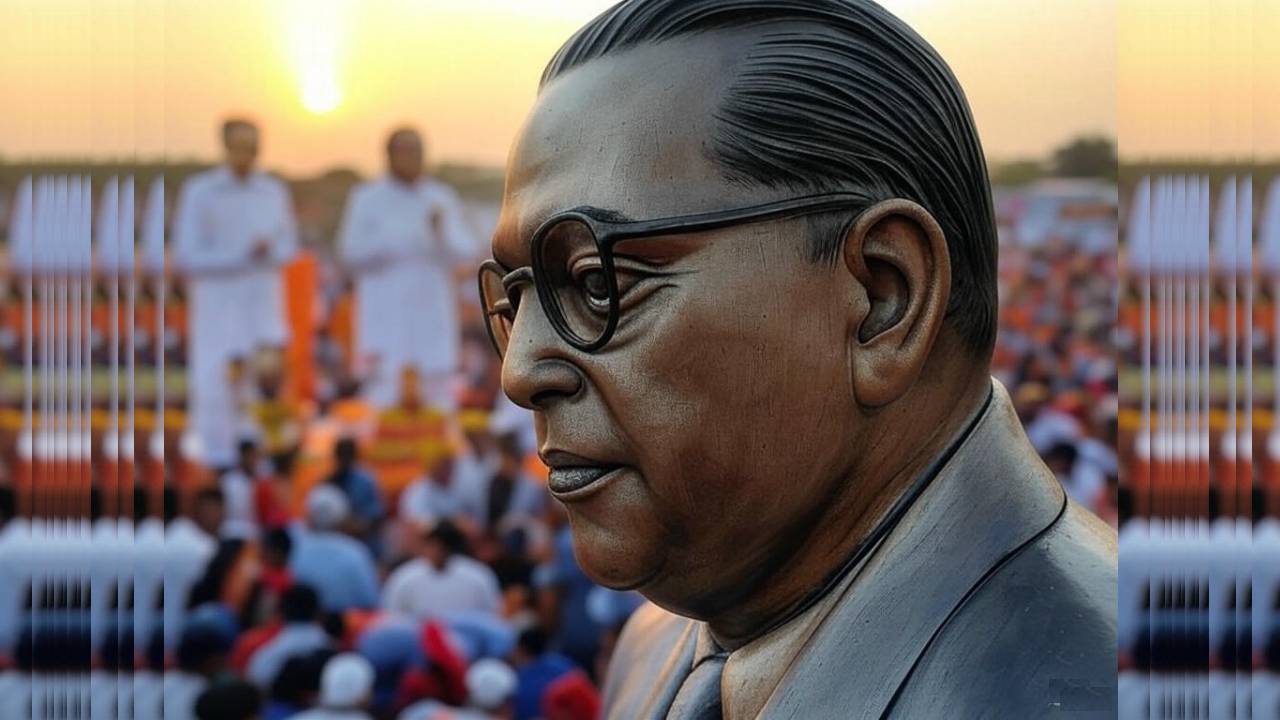
On April 14, 2025, a sea of people flooded Deekshabhoomi in Nagpur and Chaityabhoomi in Mumbai to pay heartfelt tributes to Dr. Bhimrao Ramji Ambedkar, fondly known as Babasaheb, on his birth anniversary. The atmosphere buzzed with reverence and unity as lakhs of followers came together to celebrate the life and legacy of the man who drafted India’s Constitution and championed social justice.
A Day of Remembrance and Inspiration
From early morning, devotees, activists, and admirers thronged these iconic sites, carrying flowers, candles, and banners adorned with Ambedkar’s quotes. Deekshabhoomi, where Dr. Ambedkar embraced Buddhism in 1956, and Chaityabhoomi, his cremation site, transformed into vibrant hubs of reflection. People of all ages—students, families, and community leaders—joined hands to honor his contributions to equality, education, and human rights.
Cultural programs, speeches, and prayer ceremonies filled the day. Local organizations hosted events highlighting Ambedkar’s role as a global icon of social reform. “His vision continues to guide us toward a just society,” said one attendee, echoing the sentiments of many.
Enhanced Security and Smooth Arrangements
With massive crowds expected, authorities ensured tight security and seamless arrangements. Mumbai’s Chaityabhoomi saw barricades and police presence to manage the flow of visitors, while Nagpur’s Deekshabhoomi welcomed devotees with well-organized facilities. Volunteers distributed water and food, ensuring everyone could focus on the occasion’s significance.
Leaders Pay Tribute
Prominent figures joined the commemorations, with Maharashtra Chief Minister Devendra Fadnavis sharing a heartfelt message: “Saluting Dr. Babasaheb Ambedkar, the Father of our Constitution and a beacon of social justice, on his birth anniversary.” His words resonated across social media, amplifying the day’s importance.
Why This Day Matters
Dr. Ambedkar’s birth anniversary, celebrated as Ambedkar Jayanti, is more than a historical event—it’s a reminder of his relentless fight against caste discrimination and inequality. His teachings inspire millions to strive for a fairer world. Deekshabhoomi and Chaityabhoomi remain sacred spaces, symbolizing hope and resilience for marginalized communities.
A Legacy That Lives On
As the sun set, the crowds lingered, unwilling to leave the places that hold such deep meaning. For many, visiting these sites was a personal pilgrimage, a chance to connect with Ambedkar’s ideals. “He showed us the path to dignity,” said a young student, clutching a copy of the Constitution.
Ambedkar Jayanti 2025 wasn’t just a celebration—it was a powerful call to uphold justice, equality, and unity. As lakhs returned home, they carried with them the spirit of Babasaheb, ready to keep his legacy alive.
india
Earthquakes Shake India and Neighboring Asian Nations: What’s Happening?
On April 12, 2025, a series of earthquakes rattled parts of India and several neighboring Asian countries, leaving communities on edge. From the Himalayan foothills to coastal regions, the tremors have sparked concern, with residents sharing their experiences and authorities rushing to assess the damage. Here’s a closer look at the unfolding situation.
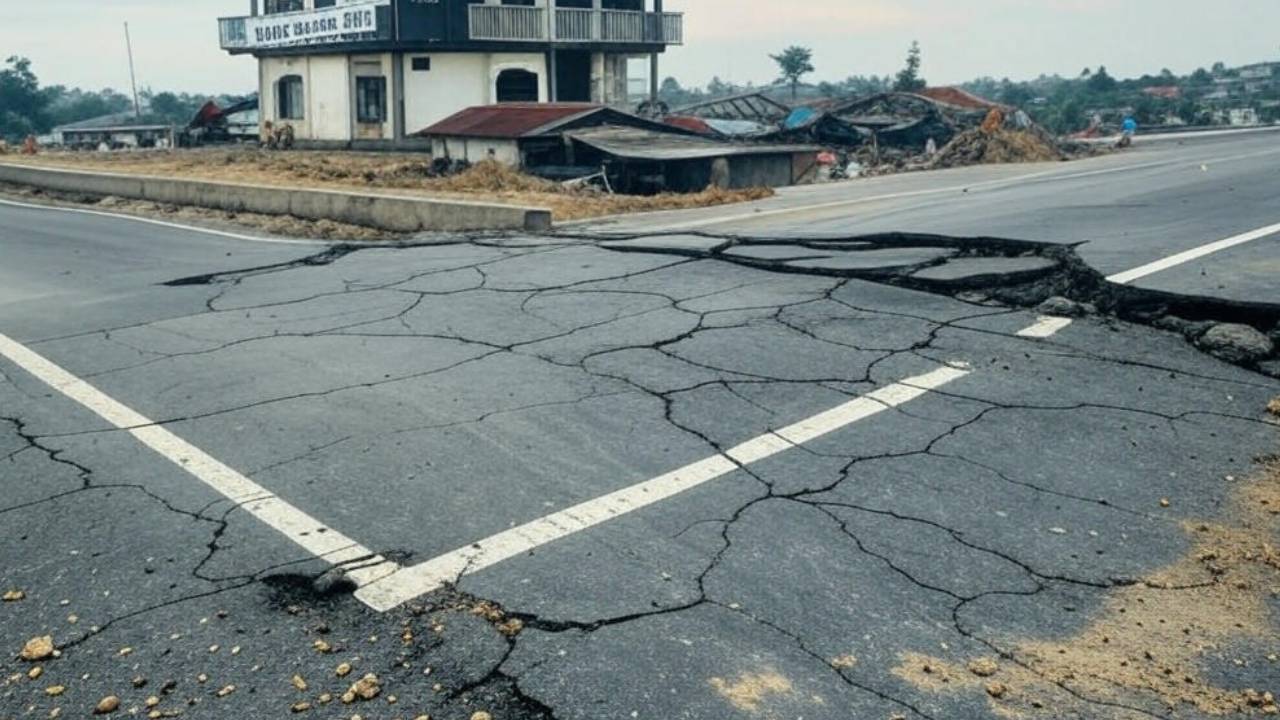
On April 12, 2025, a series of earthquakes rattled parts of India and several neighboring Asian countries, leaving communities on edge. From the Himalayan foothills to coastal regions, the tremors have sparked concern, with residents sharing their experiences and authorities rushing to assess the damage. Here’s a closer look at the unfolding situation.
Where Earthquakes Hit India
The quakes, ranging in intensity, were felt across northern India, including states like Uttar Pradesh and Bihar, as well as in neighboring nations such as Nepal, Bhutan, and Bangladesh. Early reports suggest the epicenter may have been near the India-Nepal border, a region known for its tectonic activity due to the collision of the Indian and Eurasian plates. While exact magnitudes are still being confirmed, the shaking was strong enough to jolt people from their homes and offices.
In India, cities like Lucknow and Patna reported mild tremors, with some residents feeling the ground sway for a few seconds. Across the border, Kathmandu and Dhaka experienced similar disturbances, raising fears of aftershocks. “It felt like the floor was moving under my feet,” said a local from Bihar, capturing the sudden panic that gripped the region.
Impact on Communities
So far, no major casualties or widespread destruction have been reported, but the situation remains fluid. In rural areas, where infrastructure is often less resilient, cracks have appeared in some homes, and power outages were noted in isolated spots. Authorities are urging people to stay cautious, especially in earthquake-prone zones like the Himalayas.
Social media is buzzing with videos of swaying buildings and panicked evacuations, while local officials are conducting safety checks. Schools and offices in affected areas have been closed as a precaution, and emergency response teams are on standby. “We’re prepared to act if things worsen,” a disaster management official stated, emphasizing the need for vigilance.
The Indian subcontinent sits on a seismic hotspot, making earthquakes a recurring concern. Experts link this recent activity to the ongoing tectonic shifts along the Himalayan fault line, which has triggered significant quakes in the past, like the 2015 Nepal earthquake. While the current tremors appear less severe, they serve as a reminder of nature’s unpredictability.
Trending discussions online highlight how climate change and geological stress might be amplifying such events, though this remains inconclusive. Residents are being advised to follow safety drills—drop, cover, and hold on—and avoid old or weak structures until cleared by experts.
As seismologists analyze data, the focus is on predicting aftershocks and ensuring public safety. The Indian Meteorological Department and regional agencies are working together to issue updates. For now, communities are holding their breath, hoping the worst is over.
Stay informed as the story develops. Have you felt the tremors? Share your experience in the comments below!
-

 india2 years ago
india2 years ago“Major Crash of Sukhoi Su-30 and Mirage 2000 Fighter Jets in Madhya Pradesh”
-

 Sports2 years ago
Sports2 years agoWFI meetings on April 16, elections likely to be discussed
-

 india1 year ago
india1 year agoPM Modi Meets Deve Gowda for Seat Sharing Talks
-

 india1 year ago
india1 year agoBengaluru: False threat to bomb Raj Bhavan
-

 india2 years ago
india2 years ago“AIMIM to Contest 50 Seats in Upcoming Telangana Assembly Elections”
-

 Entertainment1 year ago
Entertainment1 year agoAnant Ambani: Controversy at the Ambani Pre-Wedding Bash
-

 Karnataka2 years ago
Karnataka2 years agoWomen have to show their Aadhaar to travel free on KSRTC bus
-

 Entertainment2 years ago
Entertainment2 years agoRajinikanth is Moideen Bhai in ‘Lal Salaam’



